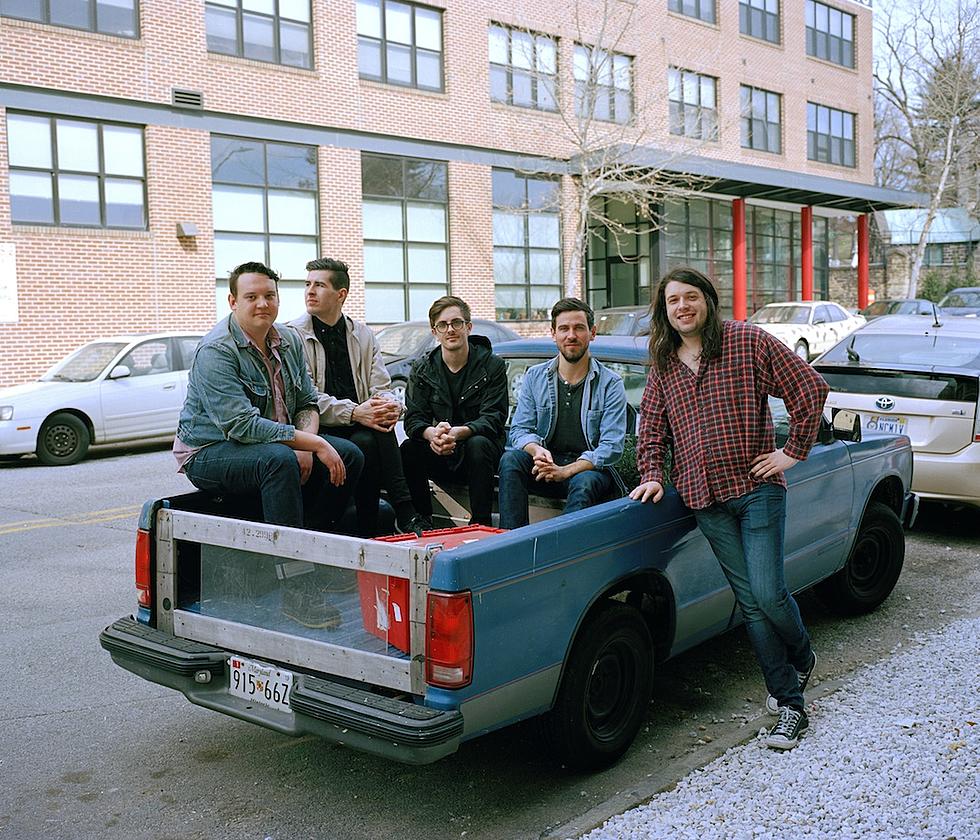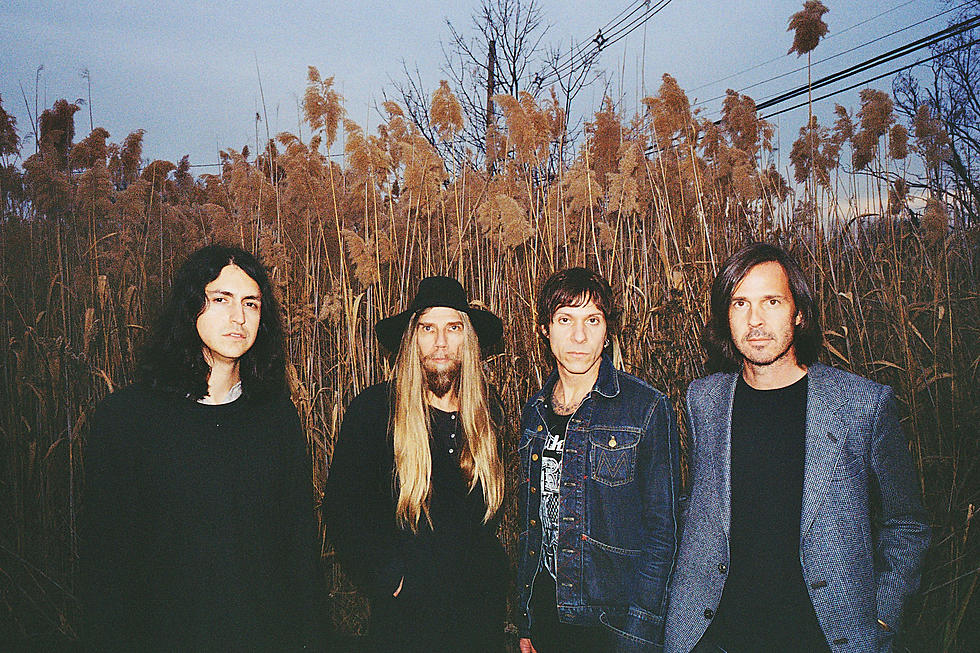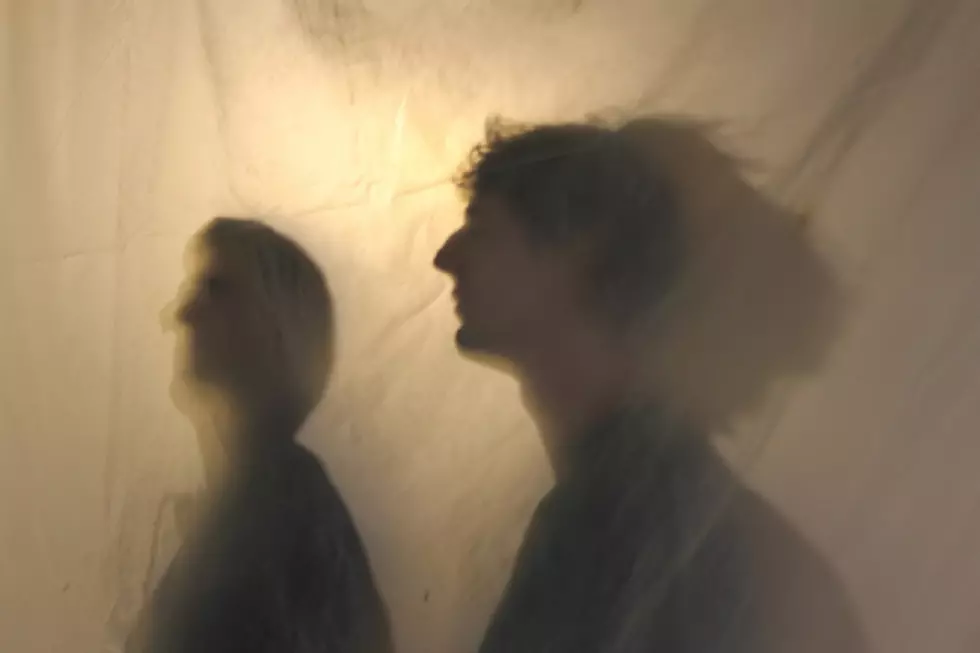
Succumb’s ‘Coal Dark Earth’ Is White-Hot, Molten Death Metal
Bay Area quartet Succumb are one of the most vicious acts in San Francisco's experimental underground as of late, blending together blackgaze, hardcore, sludge rock and death metal for a multi-disciplinary merger that nods to their stomping ground's storied, leaden legacy. At the center of the storm stands bandleader Cheri Musrasrik, a razor-throated firebrand whose screeds on sex, death, war and violence reflect a deep-seated love of poetry and theater. (W.B. Yeats, Émile Zola and Jean Genet are three of her favorites.) The resulting racket resembles a poetry reading from the ninth circle of hell, equally well-suited for headbanging and having a nice, long, loud think.
We caught up with her ahead of the release of Succumb's self-titled debut to discuss the album's musical and thematic influences, its unflinching approach to violence and sexuality, Canadian war metal and more. Stream their new song "Coal Dark Earth" below, and scroll down to check out the conversation.
Succumb's eponymous debut is out May 5 via the Flenser. Pre-order it here.
You guys have a shared penchant for Canadian metal, which is a subgenre that doesn't get brought up that much, except in certain Darkthrone songs. In your view, what are some of the key bands from Canada, and how have they impacted your music?
I would say Voivod is a big one. Piggy's [guitarist Denis D'Amour's] riffs are pretty inspirational, I think, and just the general sci-fi stuff they're into. Blasphemy's definitely a big one: war metal-style; crazy, fucked-up-sounding metal. Those are two big ones.
There's a lot of Bay Area love on the album, too. Slough Feg's Harry Cantwell drums on it; Deafheaven producer Jack Shirley manned the boards; the record itself is coming out on prominent area label the Flenser. Between the crackdown on DIY spaces after the Ghost Ship fire, and the persistent gentrification that continues to pose a threat to Bay Area musicians who are trying to make a living, what's your take on the scene as it stands now?
The scene itself has taken a huge hit with the loss of some of these DIY spaces. First Church of the Buzzard was a great spot for metal shows, and that one got shut down. The whole scene has suffered from more law enforcement. Community-wise, the scene was affected by the fire, and it was extremely depressing, dark and bleak.
You cite W.B. Yeats as a huge influence. He was a big transcendentalist, but later on in his career, he shifted his approach to reflect a more sobering, realist sentiment. Listening to this album, I felt a similar tension between the two: The music is very transcendental, but the lyrics hold a mirror to the harsh realities of violence, be it sexual, political or literal. Did that dichotomy between the fantastic and the real run through your head at all when you were working on the record?
Definitely. I am very much informed by the harsh, fucked-up realities of the world, and that is what I tend to write about. Reality is already as fucked up as it gets, and as far as trying to comment on that, I do tend to go in a lyrical direction that's more direct. That's what I look for in books, myself — describing these things in a more poetic way. You don't need to be obvious; you can talk in this way that's a little more interesting. I wanted to write something that I would equally be inspired by.
Émile Zola and Jean Genet were touchstones, too, I understand. Both of them were luminaries in the dramatic arts, and wrote some of the most important essays on the subject, not to mention plays of their own. Do you consider your work in Succumb to be a form of theater?
Yes. I never really thought about it in such formal terms, but I definitely believe — and more so with live performance stuff — that you are there to put on a show. I was not comfortable onstage until two years into doing music, and even then, there was this holding back that's [not] easy to overcome until you've done it so many times. For me, this band is about removing vulnerability, and just letting people see you do what you're doing. It's like an energy exchange: You get built up by the crowd's reaction to what you're doing, and you give them more, and they give you some.
It's definitely something that I think about. I would say that Antonin Artaud is definitely someone who I have thought about: the Theatre of Cruelty, and things like that. As a band, you owe it to the audience to give them the experience. The way the songs are structured, they twist and turn to reveal something that's surprising. That's what we look for, and that's we try to achieve.
There are a lot of sexual themes on this album. You explore BDSM, autoerotic asphyxiation and all of these forms of sexuality that go undiscussed by the mainstream. San Francisco is famous for being a crucible for sex positivity, especially as it pertains to the kink community. Has that environment had any bearing on how you approach these topics as a lyricist?
I'm definitely friends with, and immersed in, a community that is very ... sexual. [Laughs] There's the deviants; there's the queer community; there are people who are just open about sex. I've helped out at the Center for Sex and Culture, which is basically a library and archive dedicated to sex, and I would say that it's just all around. It's normal, and there's not as much shame going on as somewhere like the Midwest, or the South. I'm from around the Bay Area, so I've always been in that kind of environment and considered it normal.
What was it like, working at the Center?
I definitely was exposed to a lot of stuff through helping out there. A lot of my naughty interests were encouraged by myself, but I would find things and be like, "Oh, that looks interesting!" and go more into it, and research it. During my time there, they were cataloguing Larry Townsend's personal belongings and effects. He's the man who wrote The Leatherman's Handbook. I was just trying on his daddy caps. [Laughs] It was wonderful. I loved being involved there, and I think they're so amazing.
Speaking of war, on the album, you evoke lots of wartime imagery, like “shorn-scaled automatons,” “military machines” and “spikes to the air.” Obviously, war is a constant in the human experience, but it feels particularly prescient right now. Did today’s political climate have any bearings on the themes you explore on the LP?
Not as it is now. It was definitely being written before all of this hit, but ever since I was a tender teenager, I've had anti-government leanings, so I'd just say that this has always been there. My concerns with politics, my discontent with what goes on, it's always been there. I will be thinking about these things, and I will be writing about these things, naturally. I always have, ever since the start of this band.
More From CLRVYNT









